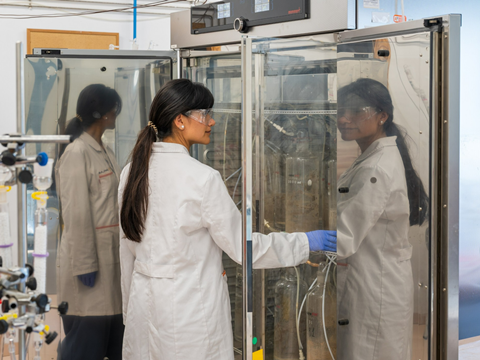
AIMPLAS says it has developed a method for assessing the biodegradability of plastic materials ‘three times faster’ than conventional testing methods, hoping to allow companies to streamline decision making when developing compostable materials.
The technology centre states that conventional biodegradation tests required by current regulations are ‘time-consuming and costly’, limiting companies’ ability to explore new formulations from the early stages of development. Designed to address this challenge, the new biodegradation test subjects materials to simulated industrial composting conditions in order to measure the conversion of polymeric carbon into CO2.
According to AIMPLAS, this approach means companies can obtain preliminary results in significantly shorter timeframes, allowing them to identify the most promising formulations early on, implement re-engineering processes in formulation and additive development, and optimize resources before entering official certification procedures.
The company notes that although this test does not replace the standardised tests required for compostable product certification (as defined by UNE-EN 13432 and related standards), it serves as a technical and strategic filter to identify the most promising samples. AIMPLAS says this reduces risk and accelerates the path to certification in line with international standards such as EN-ISO 14855, among others.
Last year AIMPLAS took part in the EU-funded SYMBA project in hopes of using AI-driven solutions to promote circular economy principles within the biobased industrial ecosystem. Its focus is the development of a unique Industrial Symbiosis (IS) methodology specifically tailored to local and regional biobased ecosystems.
More recently, the centre announced the launch of the Buddie Pack project funded by Horizon Europe, aiming to implement a circular system for the large-scale deployment of reusable plastic packaging (RPP) through a combination of social, technological, and economic innovations. The project is anticipated to cut down the production of single-use plastic packaging, reduce water and energy consumption, and avoid the release of microplastics into the oceans.
If you liked this story, you might also enjoy:
The ultimate guide to the Packaging and Packaging Waste Regulation in 2025
How are the top brands progressing on packaging sustainability?
Everything you need to know about global packaging sustainability regulation in 2025
The key to increasing the use of reusable packaging in supermarkets














No comments yet